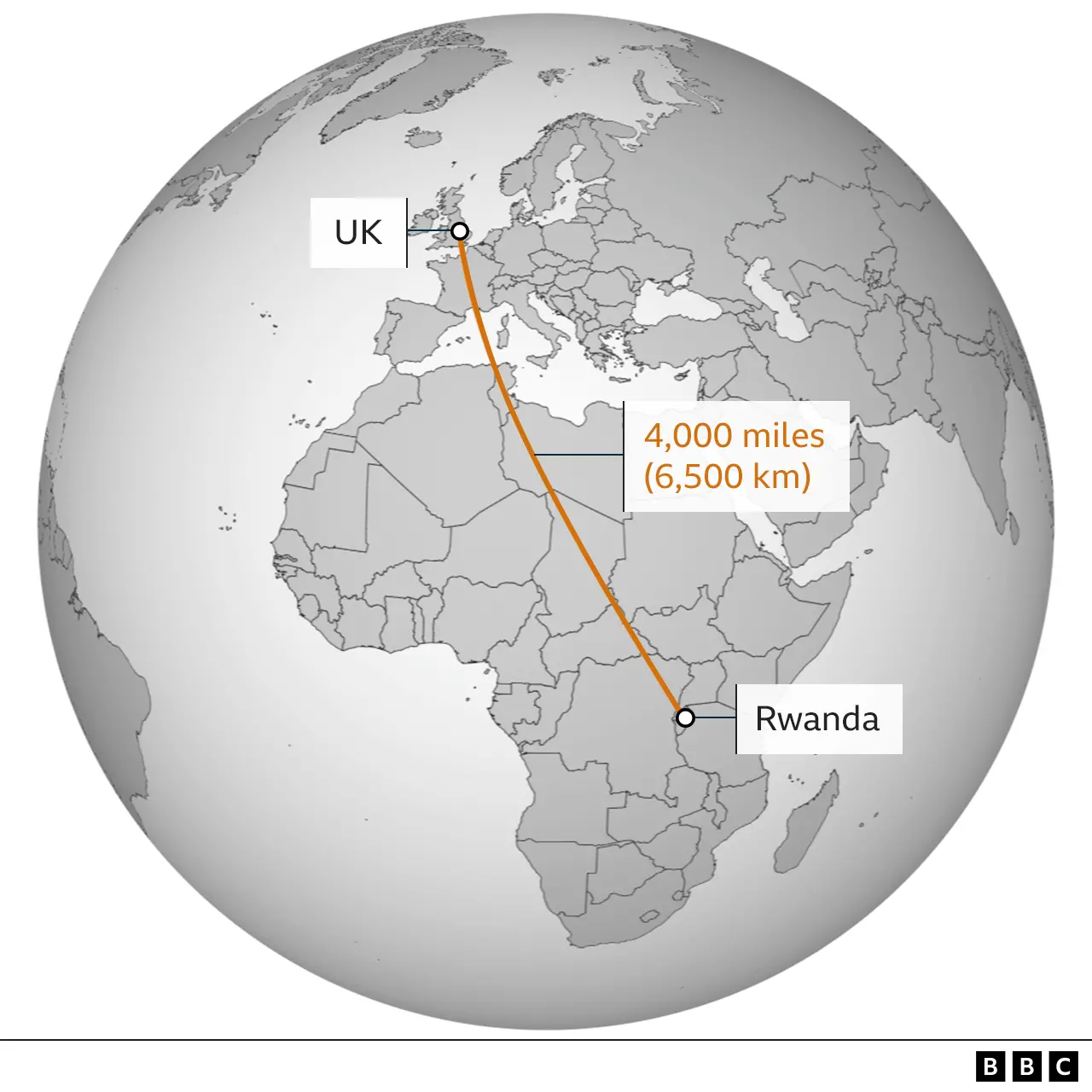Rwanda asylum plan will take time to implement - Priti Patel
 PA Media
PA MediaThe plan to send some asylum seekers to Rwanda will "take time" to bring into force, Home Secretary Priti Patel says.
She said the plan to send some to apply for asylum in the east African country would send a "clear signal" that there would be no right to remain in the UK.
The Home Office has said it will begin to inform people they will be relocated to Rwanda soon, but acknowledged delays were expected over legal challenges.
Ms Patel said lawyers would create "hurdles and barriers" to block it.
She added that the government was committed to implementing the scheme and would use "every tool and every piece of legislation at our disposal" to remove anyone who arrives "illegally".
Under the scheme, people who are seeking asylum after being deemed to have entered the UK unlawfully will be flown to the African country, where their application will be processed.
If successful, they would then have the option of long-term accommodation in the African country.
Asked whether she was confident the plan would work and how long it would take to begin, Ms Patel said: "I've said from day one, even when I signed the agreement and announced the partnership, that this will take time and it will take time for a range of reasons.
"We see various hurdles and barriers, mainly from specialist law firms that want to block the removal of individuals that have no right to be in our country."
Ms Patel added that the government's new nationality and borders bill granted "greater powers and greater means" to remove people who did not have a legal right to remain in the UK.
The Home Office said the first group of people, which will include migrants who crossed the Channel, will be informed of the intention to relocate them to Rwanda this week.
The department said the government "has the power to detain individuals pending their removal from the UK", adding the first flights were expected to take place in the coming months.
However, the it said lawyers for some of those to be flown to Rwanda are anticipated lodge claims to stop their removal.

The home secretary also said the ongoing issue of small boat crossings was "exactly why we changed our laws" and why the agreement with the Rwandan government was struck.
She said: "It's sending out a clear signal that those that come to our country illegally will have no right to remain in our country, and we will use every tool and every piece of legislation that we have at our disposal to make sure that we can remove them."
Following the scheme's announcement, the government said it would be a major blow to people smugglers and would stop people dying on dangerous routes to the UK.
The decision followed a drastic rise in the number of small boat crossings across the English Channel, with more than 6,000 people crossing so far this year.
Home Office figures suggest 28,526 people made the crossing in 2021, up from 8,466 the year before.

However, the policy has also come under significant criticism, with questions raised about its ethics, legality, cost and efficacy.
Among the critics are more than 160 charities, the Archbishop of Canterbury, opposition parties and senior Conservative Party backbenchers, including former Prime Minister Theresa May.
Ms Patel insisted the plan's critics had "no answers" to the problem of dangerous small boat crossings.
Last week, Prime Minister Boris Johnson was criticised for speaking out against "liberal lawyers" bringing challenges against the deal.
